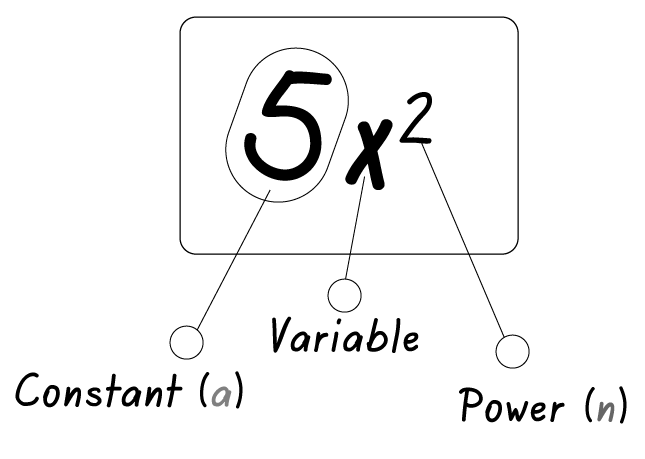
To solve for the differentiation of sine and cosine functions, follow these steps:
1. Understand the basic derivative rules:
- The derivative of \sin(x) is \cos(x)
- The derivative of \cos(x) is -\sin(x)
2. Differentiate the sine function:
Given a function f(x) = \sin(x), differentiate it with respect to x:
\frac{d}{dx} \sin(x) = \cos(x)
3. Differentiate the cosine function:
Given a function g(x) = \cos(x), differentiate it with respect to x:
\frac{d}{dx} \cos(x) = -\sin(x)
4. Use chain rule for composite sine and cosine functions:
If you have a composite function like h(x) = \sin(3x), you can differentiate it by applying the chain rule:
\frac{d}{dx} \sin(3x) = 3\cos(3x)
5. Apply the same process for composite cosine functions:
For a function like k(x) = \cos(2x), differentiate it using the chain rule:
\frac{d}{dx} \cos(2x) = -2\sin(2x)
By following these steps and understanding the basic derivative rules for sine and cosine functions, you can effectively solve differential calculus problems related to these functions.
1. Find the derivative of f(x) = sin(3x)
f(x) = sin(3x)
f'(x) = 3cos(3x)
Therefore, the derivative of f(x) = sin(3x) is f'(x) = 3cos(3x).
2. Find the derivative of f(x) = 4cos(2x)
f(x) = 4cos(2x)
f'(x) = -8sin(2x)
Therefore, the derivative of f(x) = 4cos(2x) is f'(x) = -8sin(2x).
3. Find the derivative of f(x) = 2sin(5x)
f(x) = 2sin(5x)
f'(x) = 10cos(5x)
Therefore, the derivative of f(x) = 2sin(5x) is f'(x) = 10cos(5x).
4. Find the derivative of f(x) = 3cos(4x)
f(x) = 3cos(4x)
f'(x) = -12sin(4x)
Therefore, the derivative of f(x) = 3cos(4x) is f'(x) = -12sin(4x).
5. Find the derivative of f(x) = sin(6x) + cos(2x)
f(x) = sin(6x) + cos(2x)
f'(x) = 6cos(6x) - 2sin(2x)
Therefore, the derivative of f(x) = sin(6x) + cos(2x) is f'(x) = 6cos(6x) - 2sin(2x).
Questions and Answers On Differentiation of Sine and Cosine Functions
1. Find the derivative of f(x) = \sin(x).
Ans: f'(x) = \cos(x)
2. Calculate the derivative of g(x) = \cos(x).
Ans: g'(x) = -\sin(x)
3. Determine the derivative of h(x) = 3\sin(x) + 2\cos(x).
Ans: h'(x) = 3\cos(x) - 2\sin(x)
4. Find the derivative of j(x) = \sin(x) \cos(x).
Ans: j'(x) = \cos^2(x) - \sin^2(x)
5. Calculate the derivative of k(x) = \sin^2(x) + \cos^2(x).
Ans: k'(x) = 0
6. Determine the derivative of m(x) = 5\sin(2x) - 3\cos(3x).
Ans: m'(x) = 10\cos(2x) + 9\sin(3x)
7. Find the derivative of n(x) = \sin(2x) \cos(3x).
Ans: n'(x) = 2\cos(2x)\cos(3x) - 3\sin(2x)\sin(3x)
8. Calculate the derivative of p(x) = 4\sin^2(x) - 2\cos^2(x).
Ans: p'(x) = 8\sin(x)\cos(x) + 4\sin(x)\cos(x)
9. Determine the derivative of q(x) = \sin(x)\cos(2x).
Ans: q'(x) = \cos(x)\cos(2x) - 2\sin(x)\sin(2x)
10. Find the derivative of r(x) = 3\sin(x) + 4\cos(2x).
Ans: r'(x) = 3\cos(x) - 8\sin(2x)
11. Calculate the derivative of s(x) = \sin(4x) \cos(3x).
Ans: s'(x) = 4\cos(4x)\cos(3x) - 3\sin(4x)\sin(3x)
12. Determine the derivative of t(x) = \sin^3(x) + \cos^3(x).
Ans: t'(x) = 3\sin^2(x)\cos(x) - 3\cos^2(x)\sin(x)
13. Find the derivative of u(x) = 2\sin(3x) + \cos(2x).
Ans: u'(x) = 6\cos(3x) - 2\sin(2x)
14. Calculate the derivative of v(x) = \sin(2x) \cos^2(x).
Ans: v'(x) = 2\cos(2x)\cos^2(x) - \sin(2x)2\cos(x)\sin(x)
15. Determine the derivative of w(x) = 4\sin^2(x) - 3\cos^2(x).
Ans: w'(x) = 8\sin(x)\cos(x) + 6\sin(x)\cos(x)
